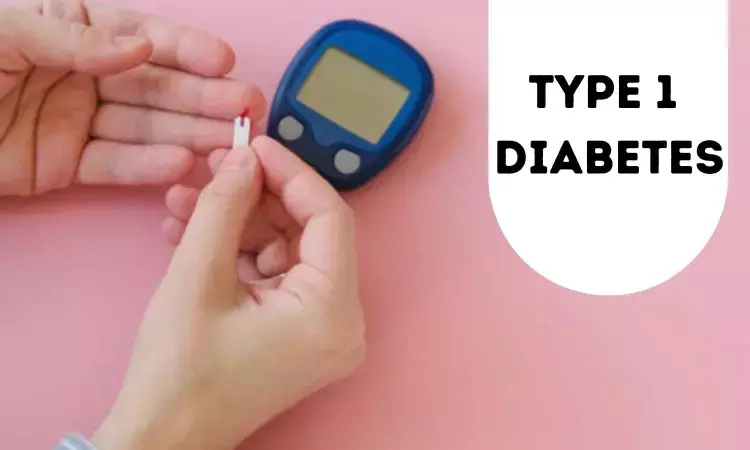- Home
- Medical news & Guidelines
- Anesthesiology
- Cardiology and CTVS
- Critical Care
- Dentistry
- Dermatology
- Diabetes and Endocrinology
- ENT
- Gastroenterology
- Medicine
- Nephrology
- Neurology
- Obstretics-Gynaecology
- Oncology
- Ophthalmology
- Orthopaedics
- Pediatrics-Neonatology
- Psychiatry
- Pulmonology
- Radiology
- Surgery
- Urology
- Laboratory Medicine
- Diet
- Nursing
- Paramedical
- Physiotherapy
- Health news
- Fact Check
- Bone Health Fact Check
- Brain Health Fact Check
- Cancer Related Fact Check
- Child Care Fact Check
- Dental and oral health fact check
- Diabetes and metabolic health fact check
- Diet and Nutrition Fact Check
- Eye and ENT Care Fact Check
- Fitness fact check
- Gut health fact check
- Heart health fact check
- Kidney health fact check
- Medical education fact check
- Men's health fact check
- Respiratory fact check
- Skin and hair care fact check
- Vaccine and Immunization fact check
- Women's health fact check
- AYUSH
- State News
- Andaman and Nicobar Islands
- Andhra Pradesh
- Arunachal Pradesh
- Assam
- Bihar
- Chandigarh
- Chattisgarh
- Dadra and Nagar Haveli
- Daman and Diu
- Delhi
- Goa
- Gujarat
- Haryana
- Himachal Pradesh
- Jammu & Kashmir
- Jharkhand
- Karnataka
- Kerala
- Ladakh
- Lakshadweep
- Madhya Pradesh
- Maharashtra
- Manipur
- Meghalaya
- Mizoram
- Nagaland
- Odisha
- Puducherry
- Punjab
- Rajasthan
- Sikkim
- Tamil Nadu
- Telangana
- Tripura
- Uttar Pradesh
- Uttrakhand
- West Bengal
- Medical Education
- Industry
FDA clears new bionic pancreas for patients with type 1 diabetes

The US food and drug administration has cleared new iLet Bionic Pancreas system for patients 6 years and older with type 1 diabetes.The clearance comes after the FDA granted the system Breakthrough Device Designation in late 2019.
The pocket-sized system features the Beta Bionics iLet ACE pump fitted with the iLet Dosing Decision Software which are then paired with a compatible FDA-cleared integrated continuous glucose monitor.
“Today’s action will provide the type 1 diabetes community with additional options and flexibilities for diabetes management and may help to broaden the reach of AID technology,” said Jeff Shuren, M.D., J.D., director of the FDA’s Center for Devices and Radiological Health. “The FDA is committed to advancing new device innovation that can improve the health and quality of life for people living with chronic diseases that require day-to-day maintenance like diabetes through precision medicine approaches.”
More than 11% of Americans are diagnosed with diabetes, which impairs the body’s ability to make or properly use the blood glucose-regulating hormone insulin. Because the pancreas does not make insulin in people with type 1 diabetes, they have to consistently monitor their glucose levels throughout the day and have insulin therapy through injection with a syringe, an insulin pen or insulin pump to avoid becoming hyperglycemic (high glucose levels). In addition, management of type 1 diabetes includes following a healthy eating plan and physical activity.
The iLet Bionic Pancreas uses an adaptive closed-loop algorithm that is initialized only with a user’s body weight and requires no additional insulin dosing parameters. This adaptive algorithm removes the need to manually adjust insulin pump therapy settings and variables as is needed with conventional pump therapy and is easier to initiate than other available AID systems. The iLet device also simplifies use at mealtime by replacing conventional carb counting with a new meal announcement feature. With the new feature, users can estimate the amount of carbs in their meal as small, medium or large and the algorithm learns over time to respond to users’ individual insulin needs.
The human pancreas naturally supplies a low, continuous rate of insulin, known as basal or background insulin. In patients with type 1 diabetes, the body’s ability to produce insulin is impaired. The iLet Dosing Decision Software independently determines and commands an increase, decrease, maintenance or suspension of all basal insulin doses and determines and commands correction doses of insulin based on input from an iCGM. It also independently determines and commands meal doses of insulin based on meal announcements.
The FDA reviewed the iLet ACE Pump and iLet Dosing Decision Software through the 510(k) premarket clearance pathway. A 510(k) is a premarket submission made to the FDA to demonstrate that a new device is substantially equivalent to a legally marketed predicate device.
The FDA granted clearance of the iLet ACE Pump and iLet Dosing Decision Software to Beta Bionics Inc.
Dr Kamal Kant Kohli-MBBS, DTCD- a chest specialist with more than 30 years of practice and a flair for writing clinical articles, Dr Kamal Kant Kohli joined Medical Dialogues as a Chief Editor of Medical News. Besides writing articles, as an editor, he proofreads and verifies all the medical content published on Medical Dialogues including those coming from journals, studies,medical conferences,guidelines etc. Email: drkohli@medicaldialogues.in. Contact no. 011-43720751


